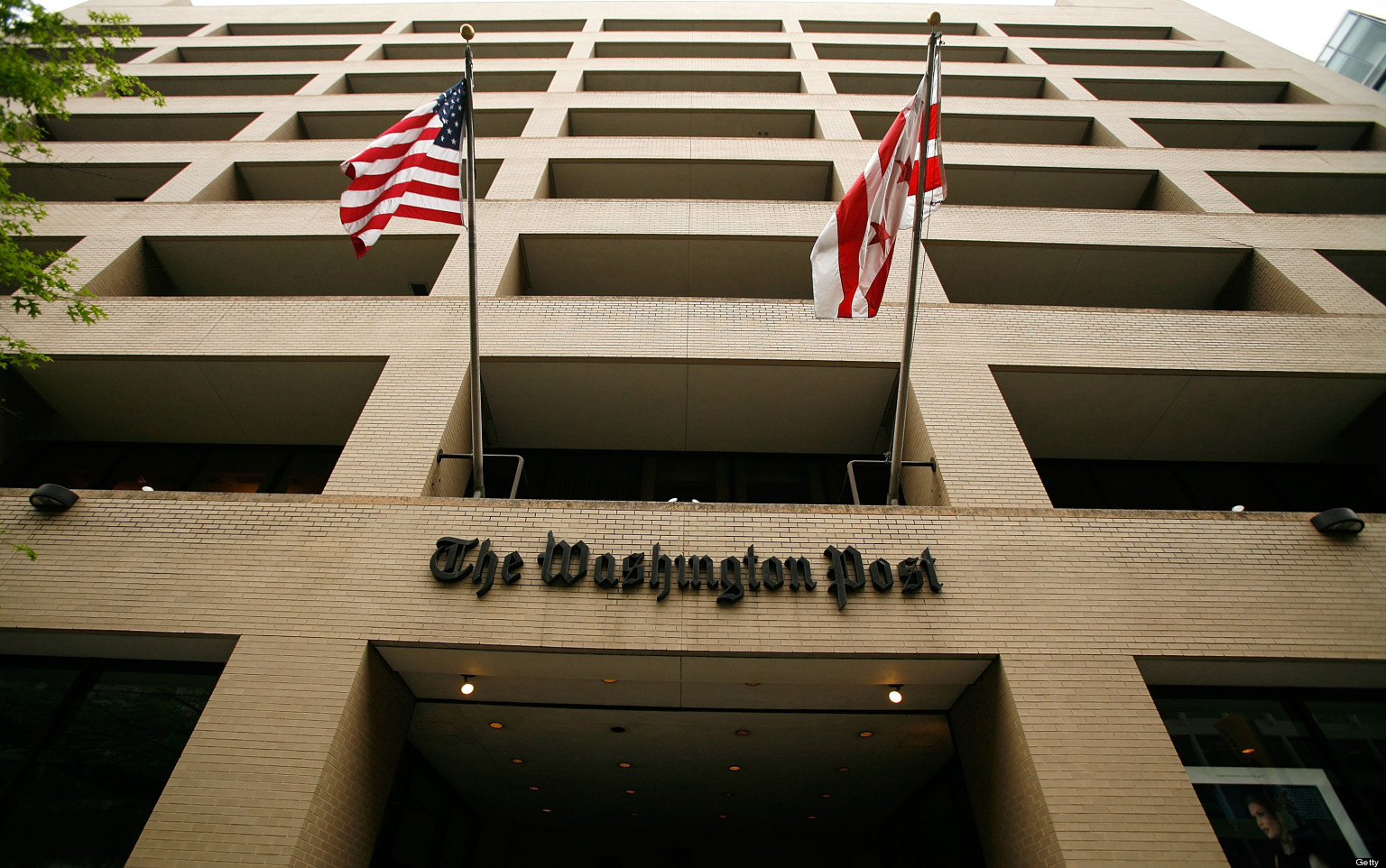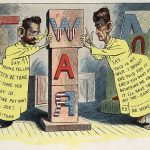by Ali Gharib
Many opponents of a nuclear deal with Iran simply won’t come out and say what they seem to be constantly getting at: that the United States should go to war. Well, kudos to the hawkish opinion pages of The Washington Post and the neoconservative scholar Joshua Muravchik for making just that argument in Sunday’s paper. Muravchik purports to explain how negotiations will never work with a regime like Iran’s (“akin to communist, fascist and Nazi regimes”), and that attacking is the only way to forestall an Iranian nuclear bomb. It’s good to see some of these anti-diplomacy hawks have the courage of their convictions.
There are other reasons to welcome Muravchik’s salvo, too. It makes the case for war, yes, but that case comes off as so laughably weak that one wonders how anyone not already ideologically committed to the notion could be swayed into supporting it. That makes the particulars of Muravchik’s argument worth delving into.
But first a word on the man. A fellow at the Johns Hopkins School of Advanced International Studies, Muravchik has the biography of a neoconservative archetype, moving left to right through socialist youth groups, the Scoop Jacksonite Coalition for a Democratic Majority, then finally into full-blown neoconservatism. His current and former affiliations, accordingly, read like neocon alphabet soup, including groups like AEI, WINEP, PNAC and JINSA, among others.
And this isn’t Muravchik’s first rodeo. A board member of the Committee for the Liberation of Iraq, he aggressively pushed war there after 9/11. Since at least as far back as 2006, he’s periodically called for war with Iran. At the end of that year—as Iraq spiraled into its bloodiest period of chaos—Muravchik published two opinion pieces, one in the Los Angeles Timesthat began with the breathless declaration, “We must bomb Iran.” The headline was half as long: “Bomb Iran.” He repeated the call in, at least, 2007, 2008, 2011 and 2014.
The latest reprise of Muravchik’s monomaniacal aim, in the Washington Post, carried a bit of a different title: “War with Iran is probably our best option.” Probably? So we—with Muravchik, it’s always “we,” the collected national mass to be dragged along into his follies—ought to go down this path again because he’s pretty sure it’s best for us! War is supposed to be a last resort; that doesn’t mean it’s “probably our best option,” but that it’s our only one. (In 2011, in a USA Today op-ed calling for—you guessed it!—war with Iran, Muravchikconcluded that “force should always be a last resort, but perfect certainty that nothing else will work only comes when it’s too late.”)
Maybe Muravchik didn’t write the Post headline, but the uncertainty over outcomes pervades his piece. “What if force is the only way to block Iran from gaining nuclear weapons?” he asks, before answering, “That, in fact, is probably the reality.” That, in fact, is probably not true. Other analysts with far fewer flops in their records think our attacking could spur Iran to take a decision toward building a bomb (something, contra Muravchik, they haven’t done, according to American and Israeli intelligence).
An Iranian decision to produce a weapon would be especially dangerous because attacking can’t actually “block Iran.” Rather, the best possible outcome of airstrikes is to set Iran’s nuclear program back a few years. Muravchik’s response to this is as simple as it is scary: just keep bombing. “[W]e can strike as often as necessary,” he wrote. The Israelis call this “mowing the lawn”—an anodyne euphemism for perpetual war.
Note Muravchik’s use of the word “perhaps” along the same lines that “probably” appears in his headline and in four places in the body of the article: meek statements declaring, Hey, maybe this’ll work! Here’s another instance of “perhaps”:
Wouldn’t an attack cause ordinary Iranians to rally behind the regime? Perhaps, but military losses have also served to undermine regimes, including the Greek and Argentine juntas, the Russian czar and the Russian communists.
Setting aside that Muravchik is already declaring victory, reaching back to the Russian czar shows how bankrupt this argument is. As Georgetown and Harvard’s Ariane Tabatabaipointed out, one need only look to the 1980s, when the Islamic Republic solidified its shaky grip on Iran with the help of a bloody war started by Saddam Hussein. A proud peoples, Iranians rallied around their flag. “The Iranian people—including myself—will resist any military action,” the Nobel laureate and human rights lawyer Shirin Ebadi, hardly a pro-regime stalwart, said in 2010 of the prospect of a Western attack.
Muravchik has been admittedly wrong about this sort of thing before. In a shallow 2006 reflection about the Iraq war, he wrote that neoconservatives, himself included, “were glib about how Iraqis would greet liberation.” No shit. But don’t let that stop you now.
For all their preening about democracy and freedom, Muravchik and his ilk must ignore the Iranian democracy and human rights activists who lay their asses on the line and oppose war. Indeed, he ignores altogether the consequences of an attack on Iranians. But he does at least address the potential for adverse effects on Americans:
And finally, wouldn’t Iran retaliate by using its own forces or proxies to attack Americans—as it has done in Lebanon, Iraq and Saudi Arabia—with new ferocity? Probably. […W]e might absorb some strikes.
“Probably…might.” Sigh. We’re talking about dead Americans here.
What’s most remarkable about Muravchik’s case is that, despite making if for nigh on a decade, the Post chose to publish it at this moment. The United States and Iran are reportedly on the cusp of an agreement to curtail Iran’s nuclear program. Muravchik’s arguments are weaker and less confident than in 2006, when diplomacy was falling flat.
That itself is telling: this is not a scholar responding to events of the day, but rather one retro-fitting his long-held predispositions onto them—the definition of an ideologue. It shows what a small clique of even quasi-respectable analysts the poor Washington Post opinion editors have to draw on to make these sorts of inane arguments. If this is the best the hawkish paper and its neoconservative allies can muster, maybe we will be okay after all.
This article was published by The Nation on Mar. 16 and was reprinted here with permission. Copyright The Nation.






“…this is not a scholar responding to events of the day, but rather one retro-fitting his long-held predispositions onto them—the definition of an ideologue.”
I’ve thought this EXACT same point regarding the ’03 Iraq invasion. To go back to ’91 (before my time, born in ’93) and read what the whole PNAC / Kristol / Weekly Standard clique said in favor of invasion, so much of it was just shoddily re-hashed in lead up to ’03.
Iraq 2 was blatantly a plan they already had in mind for over a decade, only slightly altered to match current events.
I often wonder how the hell to feel about these people. Sometimes they’re funny—you know, like clowns. Other times they’re bloodsoaked cannibals. Should I laugh? Scream? Or should I weep….
Since 20 years ago, the republicans in U.S. and their friends in Israel have been threatening Iran with attacking militarily in order to set back their nuclear program. The threat has been nothing but a hollow drum hoping the pressure will force Iran’s hand to develop the nuke bomb! This is a method of creating business and related jobs! The west knows very well that if Iran develops and test the bomb, it can easily design, sell, construct and operate nuclear power plant all across of the Arab world! The Arab nations are already concerned about Iran’s enrichment technology know-how and activities. The Arab nations are ready and the U.S. and Israel are ready to sign contract with them! Bottom line is that the west really doesn’t give a rat’s ass if the entire ME evaporates instantly by Pakistan, Iran if it had a bomb, Israel or others if they own it!
By the way, Iran is very well aware of this possibility and they have, are, and will refuse to go there. They have been consistently stating that. However, the enrichment of U’m higher than 5% was a negotiation tactic proposed by Ahmadinejad and Khamenaie in order to negotiate from the position of strength and the recognition of their enrichment rights for the power plant(s) by the west
Joshua Muravchik is a well known commodity: once a lunitic, always a madcap!
Not to criticize this excellent article by Ali Gharib, but I think the underlying issue here is much bigger than just relations between the US/Israel and Iran or the success or failure of P5+1 nuclear talks.The real big issue is about the admissibility of bombing into submission (as long and as many times as necessary) anyone who appears to be not submissive enough. Its about “moving the loan”, in other words.
I think we should understand that this way of thinking can be sold to large constituencies only through lies, omissions and misrepresentation of facts, and that kind of promotional activity is in full swing.
But what is also need for this dirty work to succeed, are certain wider perceptions, at the level of general culture. A key one, properly noted by Don Bacon, is the perception that war is about “us bombing them” without “them being able to hurt us”. This dangerous illusion is being propagated through so many channels, including education, computer games, mass media, you name it. And it has to be stopped somehow, although there is no single way of doing so. But if it is not stopped, we will continue sliding down the slippery slope towards WW III.
War is no more an option but peace is an option for america